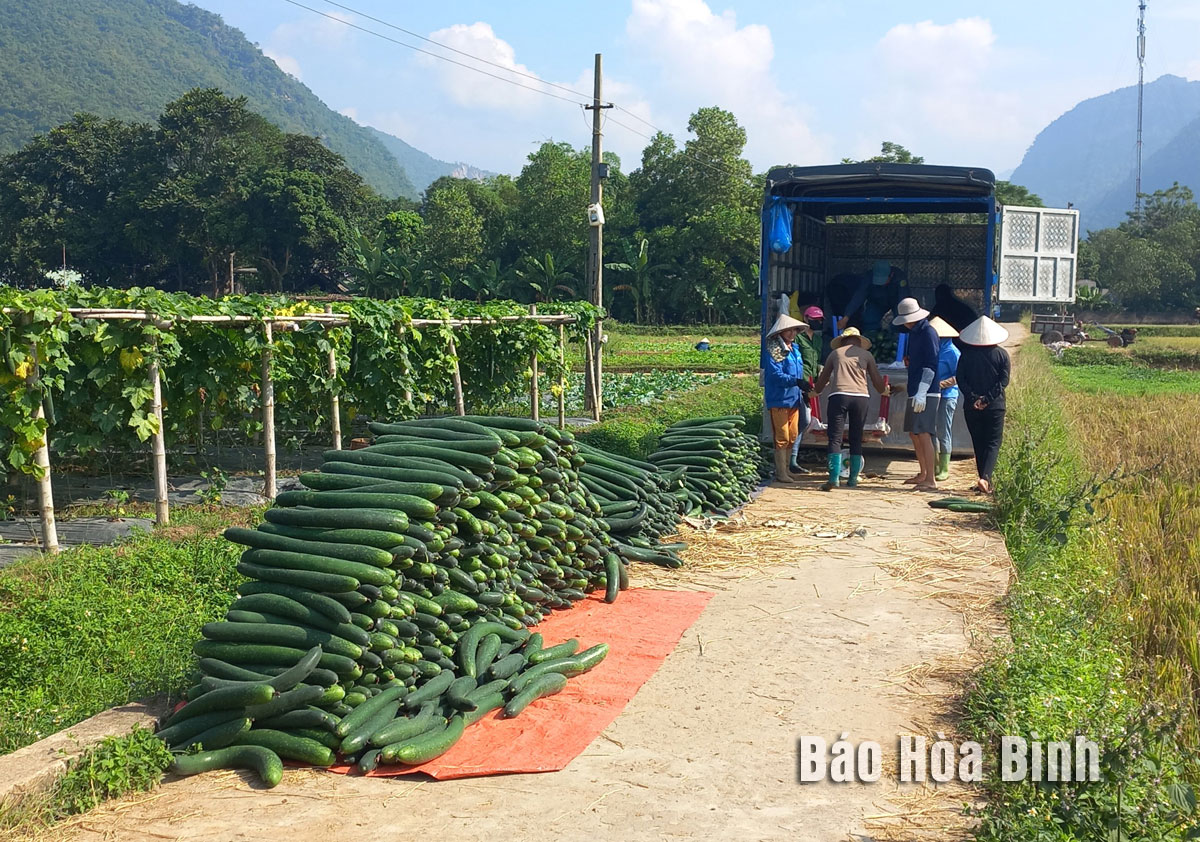
Over the past years, Mai Chau district has concretised policies, mobilised resources, and integrated the State’s investment and support programmes into its socio-economic development, aiming to help ethnic minority groups improve their living standards.
Thanks to resources from the national target programme on
socio-economic development in ethnic minority-inhabited and mountainous areas,
residents in Mai Ha Commune, Mai Chau district, have cultivated many high-value
crops.
Minority groups account for up to 88% of Mai Chau population. Over the recent
past, the district has concertedly implemented the national target programme on
socio-economic development in ethnic minority-inhabited and mountainous areas.
Thanks to policies in support of production and infrastructure development,
locals’ living standards have been improved significantly, and the district
given a facelift.
According to Ha Tuan Hai, head of the district Bureau of Ethnic Affairs, the
programmes and policies for ethnic minorities have been put in place with
diverse and practical forms, helping them get out of poverty.
Chairman of the district People’s Committee Pham Van Hoan said apart from the
above-said programme for 2021-2025, the locality has effectively implemented
other national target programmes on new-style rural area building and
sustainable poverty reduction.
Last year, Mai Chau’s average per capita incomestood at 51.3 million VND
(2,073 USD), and the rate of poor households among ethnic minorities decreased
by 3 - 4%. All of its communes have roads usable to automobiles connected to the
district’s centre, and all of schools and medical facilities there have been
consolidated.
Meanwhile, up to 99.8% of the local population have accessed the national power
grid, and 98.8% to safe water. Notably, more than 90% of minority households
are covered by health insurance. The district has opened many vocational training classes on tourism, brocade
weaving, mushroom growing, husbandry, and farming machine repair.
More than just an information technology teacher, Bui Van Nien is an inspiring figure who has nurtured the scientific curiosity and creative spirit of students in Vietnam’s ethnic minority communities.
Da Bac is the most disadvantaged mountainous district in Hoa Binh province, with ethnic minorities accounting for about 90% of its population. Over the past years, the district has mobilised resources to implement ethnic policies to improve the quality of life of local people.
In recent years, Hoa Binh province has consistently prioritised the protection, care, and education of children, particularly those from ethnic minorities and disadvantaged backgrounds, by creating a safe, healthy, and nurturing environment for their all-round development.
The Steering Committee for Tobacco Harm Prevention and Control of Hoa Binh province, in coordination with the Tobacco Harm Prevention and Control Fund, held a ceremony on May 28 in response to the World No Tobacco Day (May 31) and the National No Tobacco Week (from May 25 to 31). The event was chaired by Nguyen Van Toan, Standing Vice Chairman of the provincial People’s Committee and head of the Steering Committee.
Since 2021, the Center for Industrial Promotion and Industrial Development Consulting (CIIDC) under the Department of Industry and Trade has been implementing a school lighting model as part of the plan for using energy efficiently and economically in Hoa Binh Province in the pẻiod of 2021 - 2025. This model not only aims to improve the learning conditions and enhance the education quality, but it also promotes the message of energy saving, energy security, environmental protection and contributes to the goals of socio-economic development.
In the 2024 - 2025 school year, the entire Hoa Binh provincial education sector includes 520 educational institutions and schools. Among them are 13 ethnic boarding schools with 153 classes and 4,487 students. Four of these schools have met national standards, reaching 30.7 percent.



